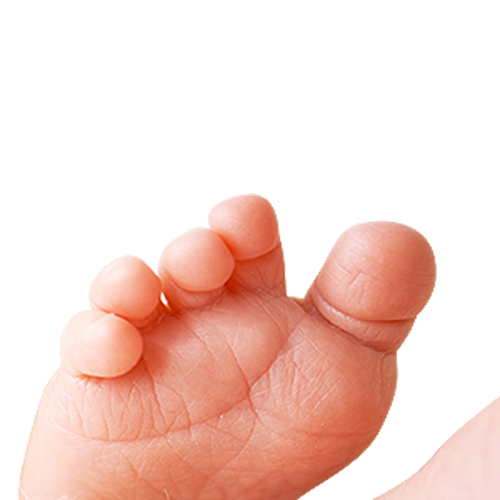A new baby brings love, joy, and wonder into a family. In return, a family must provide all the affection and care needed for his/her well-being.
Nutrition for newborns
Once home, your baby will soon let you know that he/she is hungry! Therefore, nutrition will be one of the first needs that will have to be met. Exclusive breastfeeding remains the recommended feeding option for the first six months of life for several reasons:
- Breast milk is naturally designed to meet the nutritional needs of a newborn.
- It provides him/her with various antibodies, which enable the immune system to develop.
- Breast milk is usually easily digested by the newborn.
- Breastfeeding is a special time that helps form a bond between mother and child.
However, it is possible for breastfeeding to be difficult, or even impossible for you. Before giving up on it, talk to a healthcare professional such as your doctor, a nurse, or your pharmacist. They can provide your with information or, if needed, recommend a formula that will adequately replace breast milk.
Diaper changes
Where there is nutrition, there are also diaper changes! In order to promote your baby’s hygiene and avoid certain problems, a diaper must be changed as quickly as possible after it has been soiled. Make sure to adequately clean your baby’s bottom and genital area using a wet towel or wash cloth. Let the skin air dry before putting on a clean diaper.
Because urine and stool are irritating to the skin, your baby may develop a rash or an irritation. If this is the case, a zinc oxide-based cream will protect the skin against such problems. Don’t hesitate to ask your pharmacist for advice in order to choose the appropriate product. Do not use talcum powder when changing a diaper, as this product can cause respiratory problems.
Bath time
Contrary to what one might think, a newborn does not need a bath every day. In fact, a bath every two or three days can be enough. However, the baby’s face and hands must be washed more frequently using a wet wash cloth. A baby’s hair can be washed once or twice a week using a gentle baby soap or shampoo.
This is what should be done to have a safe and pleasant bath:
- Prepare all the things you will need (soap, clean diaper, towel, etc.) ahead of time, and keep them within reach.
- Fill the bathtub or sink with roughly 10 cm of water. The water should be at a temperature of 37°C, in other words, neither hot nor cold. WARNING—your baby should never be in the bathtub while the water is running.
- Place a towel or an anti-slip bath mat in the bottom of the bathtub to prevent the baby from slipping.
- Place the baby in the bathtub after having checked the water temperature.
- Hold your baby with one hand, while washing him/her with the other. Use a gentle, unscented soap that is specially designed for babies.
- Gently dry your baby with a clean towel as soon as he/she comes out of the water; pay particular attention to folds in the skin. Put on a clean diaper and dress him/her.
- Never leave a baby alone during a bath, not even for a second! It is necessary to keep a constant eye on your baby to ensure his/her safety.
The umbilical cord
The umbilical cord is partially severed after the baby’s birth. The portion left attached to the skin falls off naturally about two to three weeks after birth. Do not try to accelerate the process by pulling on what is left of the umbilical cord! This could injure your baby.
Just make sure to keep this area clean by washing it with warm water and a gentle soap. Also, make sure the diaper comes under the navel and does not rub on the umbilical cord. Once the remaining part of the umbilical cord falls off, the skin can take a little more than a week to heal.
Your pharmacist to the rescue!
As a new parent, it is completely natural to feel moments of insecurity. Fortunately, you can surround yourself with competent healthcare professionals, who will be able to advise and support you. For instance, it’s a good thing to be able to rely on the expertise of a pediatrician or a nurse at a CLSC.
Pharmacists can be a valuable resource in many situations. Accustomed to watching over the welfare of young children, your pharmacist will be able to inform or advise you, or direct you to the appropriate resources. Additionally, a great number of products can be found at the pharmacy to make everyday life easier and to ensure that you can give your baby quality care. Don’t hesitate to ask your pharmacist as many questions as necessary.
Take advantage of every moment!
Taking care of a newborn can certainly be stressful, but it is also a golden opportunity to form a close bond with your baby. Babies need stimulation, safety, comfort, and affection. The care you provide will undoubtedly offer your baby all of that. Therefore, enjoy the time you spend with your newborn, as these moments are precious, and to be honest, often go by much too quickly!

